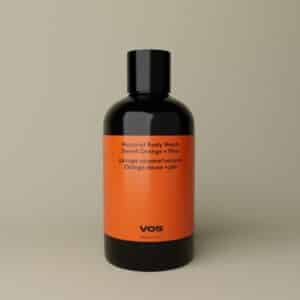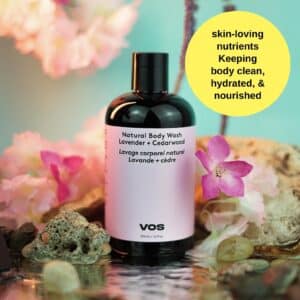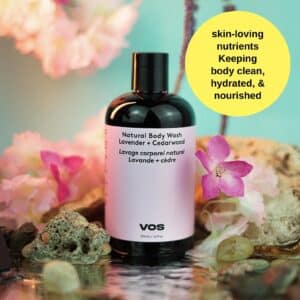Caring for sensitive skin requires close attention to the products you use daily. Body wash is no exception. Many conventional cleansers contain sulfates, fragrances, and harsh preservatives that can strip away moisture and cause irritation. Opting for natural & sulfate-free body wash options for sensitive skin can help maintain your skin’s protective barrier while reducing the risk of redness, itching, or dryness.
This guide outlines what to look for in a body wash for sensitive skin, why ingredients matter, and how to incorporate the right product into your overall skincare routine.
Understanding Sensitive Skin and Its Needs
What Makes Skin Sensitive?
Sensitive skin reacts more readily to both environmental factors and product ingredients. Triggers may include fragrances, harsh surfactants, or even temperature shifts. Common symptoms are redness, itching, and dryness, especially after cleansing.
If you experience these reactions regularly, using a body wash formulated specifically for sensitive skin may help minimize flare-ups.
The Role of the Skin Barrier
The skin barrier plays a critical role in protecting against external irritants and locking in moisture. When the barrier is disrupted, skin becomes more reactive. Sulfates—commonly used in many body washes for lather—can contribute to this disruption by stripping away the skin’s natural oils.
Switching to natural & sulfate-free body wash options for sensitive skin helps preserve the integrity of this barrier, which is key to managing sensitivity.

Why Go Sulfate-Free?
What Are Sulfates?
Sulfates are cleansing agents used in shampoos, soaps, and body washes. Sodium lauryl sulfate (SLS) and sodium laureth sulfate (SLES) are among the most common. While effective at removing oil and dirt, these ingredients can be too aggressive for sensitive skin types.
Sulfate-Free Alternatives
Gentler alternatives to sulfates include plant-based surfactants like coco-glucoside and decyl glucoside. These ingredients cleanse the skin without removing essential moisture or disrupting the skin’s pH balance.
By avoiding sulfates, your body wash becomes less likely to provoke irritation, making it a safer choice for sensitive skin.
Key Ingredients to Look For
When selecting a natural & sulfate-free body wash, pay attention to ingredients that support hydration, calm inflammation, and promote barrier repair.
Natural Moisturizers
- Aloe Vera: Known for its soothing properties, aloe vera helps reduce redness and irritation while hydrating the skin.
- Glycerin: A humectant that draws moisture into the skin, preventing dryness.
- Shea Butter: Rich in fatty acids, it provides lasting hydration and helps support the skin barrier.
Calming Botanicals
- Chamomile Extract: Has anti-inflammatory properties and may reduce skin sensitivity.
- Calendula: Often used to calm skin and support recovery from irritation.
Avoid These Additives
- Synthetic Fragrances: Often cause allergic reactions in sensitive skin.
- Alcohols: Can dry out the skin and increase sensitivity.
- Artificial Dyes: May irritate and trigger inflammation.

Incorporating Body Wash into Your Skincare Routine
Step 1: Choose the Right Water Temperature
Use lukewarm water rather than hot. Hot water can further compromise the skin barrier and exacerbate dryness.
Step 2: Apply Body Wash Gently
Avoid using rough washcloths or loofahs, which can irritate sensitive skin. Use clean hands or a soft cloth to apply the body wash.
Step 3: Rinse Thoroughly
Residue left on the skin can cause discomfort. Ensure you rinse off the body wash completely, especially in skin folds.
Step 4: Follow with a Moisturizer
After patting your skin dry, apply a fragrance-free moisturizer while the skin is still slightly damp. This helps lock in moisture and supports your barrier.
Step 5: Track Skin Reactions
Introduce new products one at a time and monitor your skin for any changes. Even natural ingredients can cause reactions in certain individuals, so patch testing is recommended.
Benefits of Using Natural & Sulfate-Free Body Wash Long-Term
Improved Skin Comfort
Over time, switching to a natural body wash helps reduce irritation, itching, and redness. Users often report feeling more comfortable and less reactive.
Better Hydration
Natural ingredients and sulfate-free formulations are less drying. This leads to improved skin texture and hydration with continued use.
Fewer Breakouts
Fragrance and sulfates can trigger body acne or inflammation. A cleaner formula reduces the risk of these reactions, especially on the back, chest, and shoulders.
Compatibility with Skincare Routine
A body wash that supports the skin’s barrier fits seamlessly into a broader skincare routine. From cleansers to moisturizers, every step works better when skin is healthy and balanced.
Tips for Making the Switch
- Start Gradually: Use the new body wash once every other day for the first week to ease your skin into the change.
- Avoid Using Bar Soaps Meant for Hands: These are often too drying for sensitive body skin.
- Don’t Rely on Scent as a Quality Indicator: Natural products without fragrance are often better suited to sensitive skin.
Final Thoughts
Choosing the right body wash is essential for maintaining healthy, balanced skin, especially if you deal with sensitivity. By prioritizing natural & sulfate-free body wash options for sensitive skin, you can reduce irritation and support your skin’s long-term health. Integrating these options into your daily skincare routine promotes overall comfort, hydration, and resilience.






